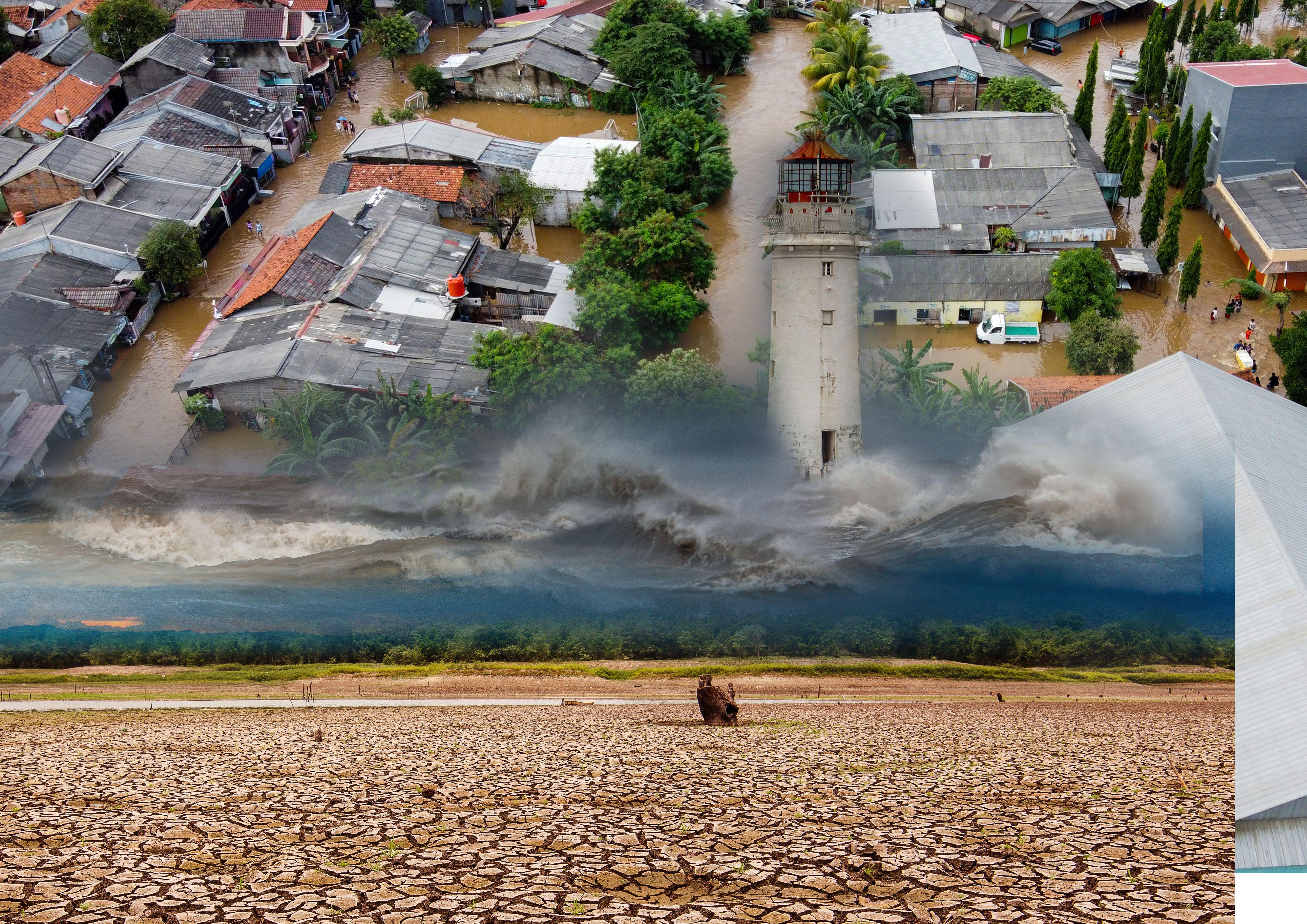
3 minute read
Climate Adaptation is Mostly a Water Story
Decarbonisation efforts will continue, but the climate is already changing and technologies that address water challenges will be key for industry and society to adapt to our new water reality.
For the last few decades the technology vertical in climate - ‘ClimateTech’ - has almost entirely focused on minimising or eliminating carbon emissions, often labelled ‘Net Zero’. And while renewable energy, energy efficiency, and carbon sequestration efforts must continue, a changed climate is already upon us - destroying lives and livelihoods, especially in lower income communities around the world.
Advertisement
Even if we stopped all carbon emissions today, industry and society face rapidly escalating risks associated with an already changed climate.
A key consequence of a warmer atmosphere is changes in the hydrological cycle, as evidenced by the increasing frequency of extreme weather events such as hurricanes, flooding and droughts.
This is resulting in a growing segment of companies and investors who recognise that ClimateTech includes technology innovations that address not only the transition to a low-carbon economy, but also innovations that manage a growing list of waterrelated risks and challenges.
While most of these technology innovations are water-focused, they are not necessarily waterindustry (think utilities) related, and address water risks in a wide range of industries spanning aquaculture, transportation, power generation, and real estate.
Why is climate change more than a carbon story?

‘‘“There are two equally important components of ClimateTech: 1) Limiting, and ideally reversing the decades-old trend of atmospheric warming, and If we make the assumption that industry’s and society’s decarbonisation efforts will not be able to reverse climate change in the next 10-20 years, we must adapt to new climate patterns. Climate change will manifest through changes in the quantity of water, be it too much - in the 2) Adapting to the consequences form of flooding - or not enough - through of the changes in climate droughts and desertification. It will also have patterns we are already knock-on effects on water quality due to experiencing, and preparing for changing weather patterns and increasing the changes predicted by climate surface temperatures. models.”
This will alter the aquatic ecosystem, for instance, by increasing the severity of algal Dr. Anders Hallsby, blooms, and/or force municipalities, well- Partner, Mazarine owners, and industry to find alternate ‘new’ water sources, many of which are of lower quality than what is currently used, and likely will need to be treated in new and different ways before being used.
Exclusive interview: Aquatech’s Executive Chairman Venkee Sharma
We sat down with Venkee Sharma, Executive Chairman at Aquatech, to learn more about his views on climate adaptation and the steps the company is taking to prepare for an uncertain water future.
What do you understand about the term ‘climate adaptation technology’?
The future is uncertain, and an inevitable consequence of climate change will be the requirement of society and industries to adapt to changes that have already occurred and are ongoing. From a water context, we consider climate adaptation technologies as those that help address water scarcity and water quality concerns in a cost-effective way.
Many customers will not have enough water to deliver on their business needs in the future or will face challenges related to water quality.
Regardless of the industry, everyone will have to tackle the challenge of unpredictable climatic conditions.

How do you think climate change will impact your business?
Aquatech enables and supports our customers in achieving their decarbonisation goals as well as climate adaptation and resilience needs. We believe decarbonisation and climate adaptation are of equal importance and are both growing business and innovation areas for our business. We are already feeling the impacts of climate change – it is not just a concern for future generations but for us all. The changes we are seeing and the rate at which they are occurring are unprecedented. Adapting will require new perspectives, technologies, and innovative models to deal with this uncertain future. It will also require more investment.










